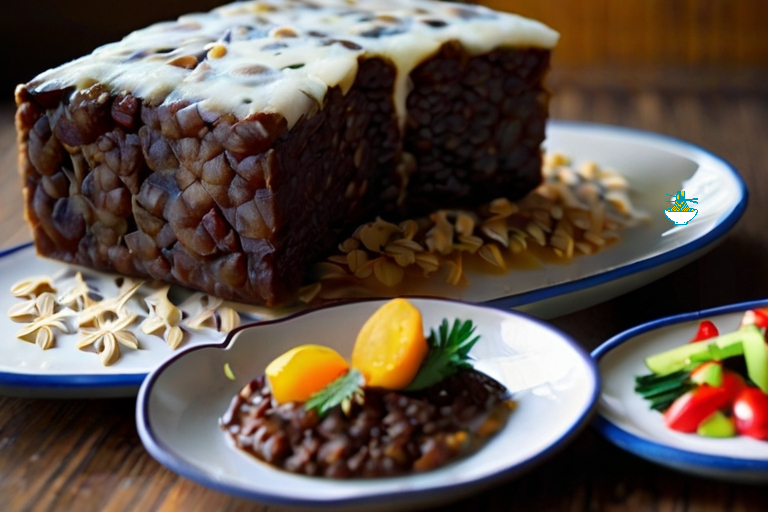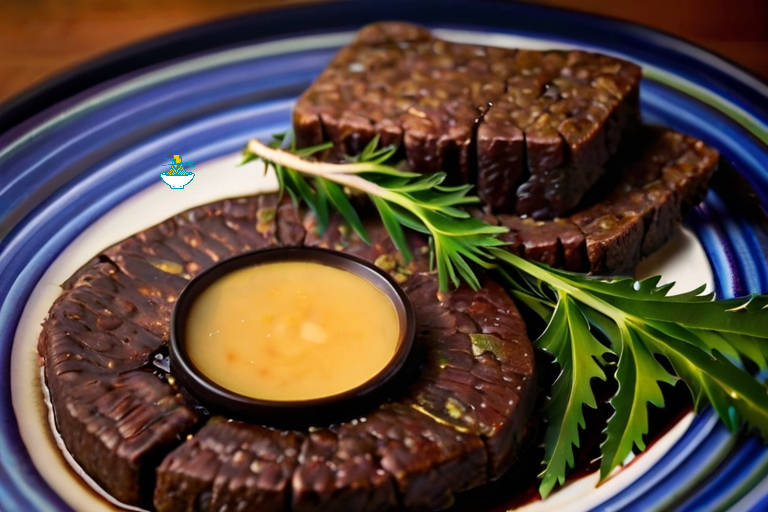Step into the rich cultural heritage of Canada's Indigenous peoples with the iconic sustenance known as pemmican. A blend of dried meat, typically bison, elk, or deer, mixed with rendered fat and sometimes berries, pemmican has sustained Indigenous communities for centuries. Delve into the history, preparation methods, and significance of this traditional food, cherished for its portability, long shelf life, and nutritional value. Discover the intricate process of crafting pemmican, a culinary art passed down through generations, embodying resilience, resourcefulness, and a deep connection to the land. Explore the cultural significance of pemmican in Indigenous ceremonies, gatherings, and daily life, as it remains a symbol of survival and cultural pride. Join us on a journey to appreciate the enduring legacy of Canada's Indigenous peoples through the timeless tradition of pemmican.
Here's a basic recipe for making traditional Canadian pemmican:
Ingredients:
- 1 pound (450 grams) lean meat (bison, elk, deer, or beef)
- 1/4 cup dried berries (such as cranberries, blueberries, or Saskatoon berries)
- 1/4 cup rendered fat (traditionally from the same animal as the meat)

Instructions:
1- Begin by preparing the meat. Trim off any excess fat and cut it into thin strips or small chunks. You can use a lean cut like sirloin or flank steak.
2- Preheat your oven to its lowest setting, typically around 150-170°F (65-75°C).
3- Lay the meat strips or chunks on a baking sheet lined with parchment paper. Place them in the oven and let them dry for several hours, checking occasionally until they are completely dried out. This process can take anywhere from 4 to 12 hours depending on the thickness of the meat and your oven's temperature.
4- Once the meat is fully dried, remove it from the oven and let it cool completely.
5- In a bowl, combine the dried meat with the dried berries. You can crush the berries slightly if they are large.
6- Heat the rendered fat in a small saucepan over low heat until it is melted and clear. Be careful not to let it boil or smoke.
7- Pour the melted fat over the meat and berry mixture, stirring well to coat everything evenly.
8- Press the mixture firmly into a mold or shape it into small balls or bars with your hands. Traditionally, pemmican was often formed into small cakes or balls for easy storage and transport.
9- Let the pemmican cool and harden at room temperature for several hours or overnight.
10- Once cooled and hardened, your pemmican is ready to eat! Store it in an airtight container at room temperature for long-term storage, or pack it for your next outdoor adventure.
Enjoy your homemade Canadian pemmican, a traditional Indigenous food packed with protein, energy, and flavor!
Nutritional Values:
Here are the approximate nutritional values for the main ingredients used in traditional Canadian pemmican:
Lean Meat (per 100 grams):
- Calories: 143 kcal
- Protein: 28.4 grams
- Fat: 3.1 grams
- Carbohydrates: 0 grams
- Fiber: 0 grams
benefits:
- Excellent source of high-quality protein, essential for muscle growth and repair.
- Rich in iron, which helps transport oxygen in the blood and prevents anemia.
- Provides essential vitamins and minerals like B vitamins (B12, niacin, riboflavin) and zinc, important for overall health and immune function.
Dried Berries (per 100 grams, mixed berries):
- Calories: 349 kcal
- Protein: 2.3 grams
- Fat: 1.1 grams
- Carbohydrates: 84 grams
- Fiber: 9.7 grams
benefits:
- High in antioxidants, which help protect cells from damage caused by free radicals and reduce the risk of chronic diseases.
- Good source of dietary fiber, promoting digestive health and helping regulate blood sugar levels.
- Contains vitamins C and K, as well as various minerals like manganese and potassium, contributing to immune support and bone health.
Rendered Fat (per 100 grams, beef tallow used as an example):
- Calories: 902 kcal
- Protein: 0 grams
- Fat: 100 grams
- Carbohydrates: 0 grams
- Fiber: 0 grams
benefits:
- Dense source of energy, providing concentrated calories necessary for sustained physical activity and endurance.
- Contains fat-soluble vitamins such as vitamins A, D, E, and K, essential for various bodily functions including vision, bone health, and blood clotting.
- Saturated fats found in rendered animal fat, when consumed in moderation as part of a balanced diet, can contribute to hormone regulation and cell membrane structure.
Please note that these values are approximate and can vary based on the specific type and cut of meat, type of berries, and source of rendered fat used in the recipe. Additionally, the nutritional content may vary depending on factors such as cooking methods and portion sizes.


Comments